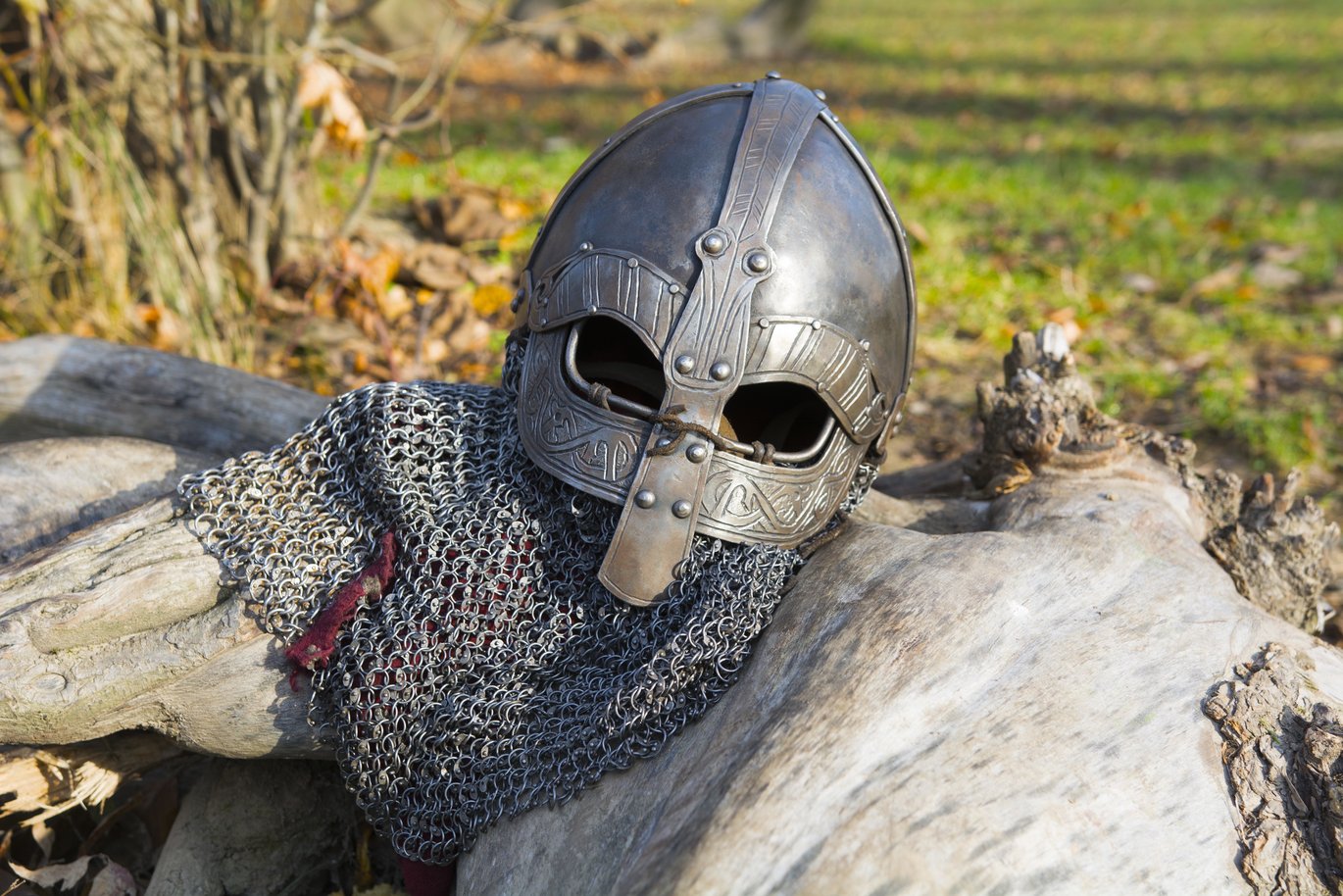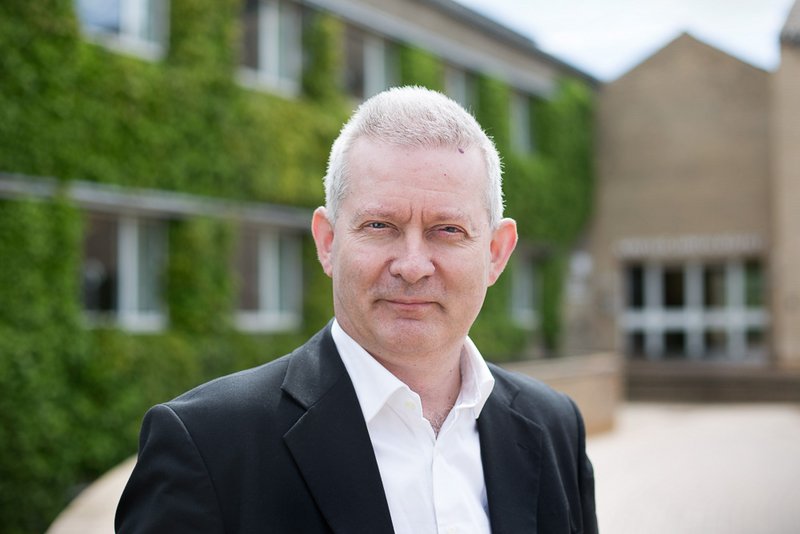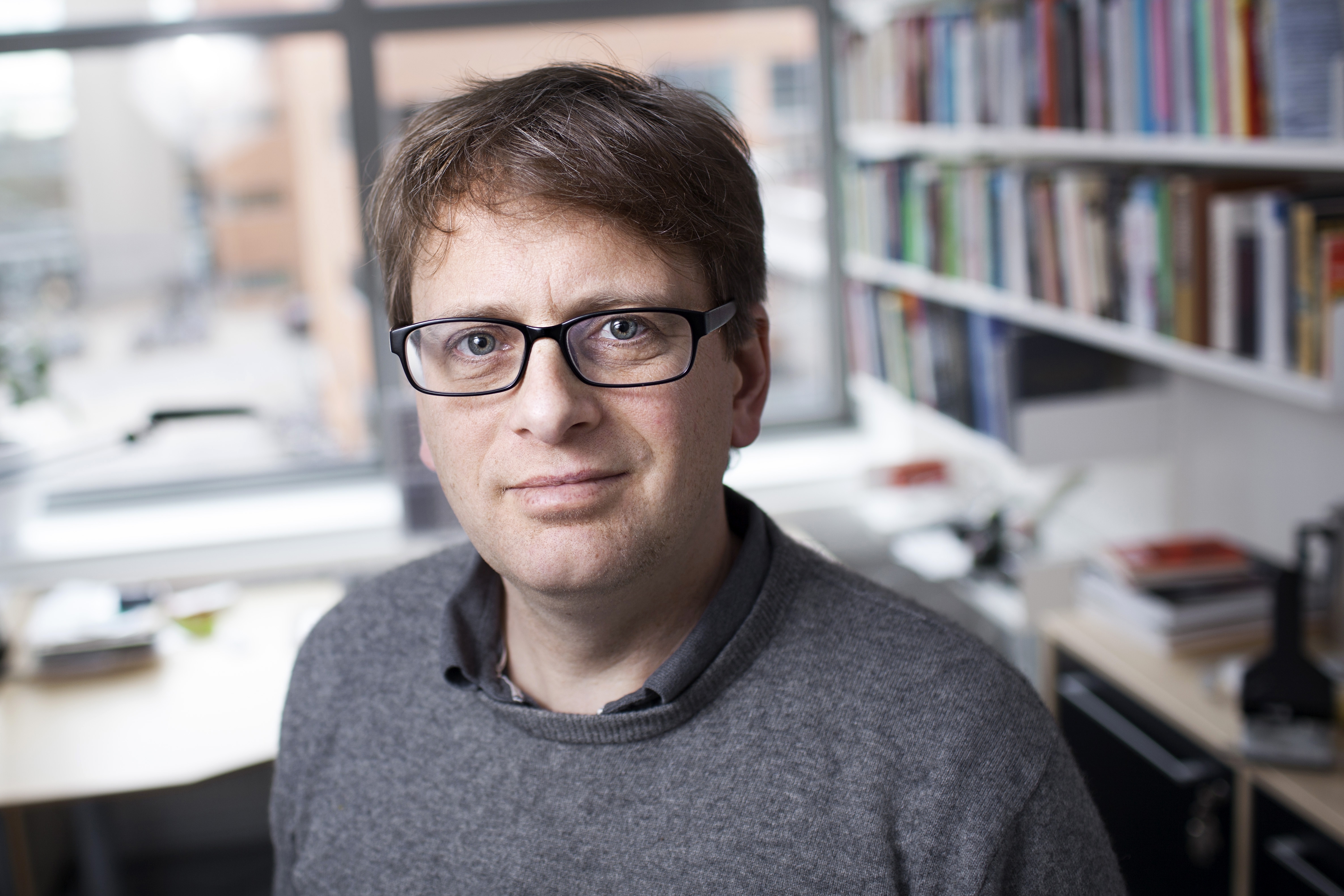Is the language of the Vikings going to die out at AU?
Arts has to save money, so the elective course in Old Norse won’t be offered next year. According to Karen Bek-Pedersen, who teaches the course, this will mean the virtual extinction of Old Norse teaching in Denmark: the decision is critical at a national level. But the dean and the head of school are optimistic: they expect that Old Norse will be revived, maybe even as early as 2024.




The language the Vikings spoke – Old Norse – may soon be extinct in in Denmark, fears Karen Bek-Pedersen, who teaches Old Norse at AU. In September, she was notified that her elective course won’t be offered again after her current students sit their exams in January 2023.
“We’re going to look ridiculous here in Denmark, because we’re the only Nordic language-speaking country where it isn’t taught. You can also study Old Norse in Germany, Austria, Great Britain and the United States, and I’ve heard that there are some places in South America where you can study it. You can study it in New Zealand,” Karen Bek-Pedersen said.
The only lecturer in Old Norse at AU, she’s on a short-term contract here; her primary job is her company Salix Lingua, which offers academic translation and proofreading services.
According to Johnny Laursen, dean of the Faculty of Arts, the decision to axe the course from the study of religion curriculum is due to the university’s strapped financial situation, which is particularly dire at Arts – and has been for several years. The faculty’s financial headaches stem from the government’s ‘relocation reform’ – which is forcing the faculty to cut study places – combined with a decline in student intake in 2022 and rising energy prices.
Old Norse gives access to Danish history
The two-semester course in Old Norse is intended to give students on the study of religion programme insight into the language central historical source texts were written in. While the language taught on the course is called ‘Old Norse’ (in Danish, nørront), to be precise, it’s actually Old Icelandic.
“We have to be able to understand Old Norse to access that part of Danish history (the Viking age, ed.). The most important sources we have for the shared Norse mythology were written down in Iceland. This means Old Norse is an important language in relation to our ability to sustain the level of the research we have into these old texts,” Bek-Pedersen explained.
“I’ve encountered journalists who’ve asked: Yes, but haven’t we pretty much read what there is to read in these texts? Can there really be more in them we haven’t discovered yet? And yes, there really can. It’s like saying that H.C. Andersen only wrote a limited number of fairy tales, so aren’t we about done with them, “ she said by way of analogy.
UCPH offers Old Norse – barely
At the University of Copenhagen, Old Norse is part of a one-semester elective that introduces students to three other medieval languages as well, according to Bek-Pedersen. But AU is the last place in Denmark that offers training in Old Norse at a level that enables Danish students to understand the earliest texts about Viking kings such as Harald Bluetooth and Sweyn Forkbeard.
“It won’t disappear completely, but it will have a minimal presence and not at a scale that can be used to develop research. Off hand, I’d estimate that what’s been offered at AU represents 90% of the courses in Old Norse taught in Denmark,” she said.
End of a short-term contract – end of a language?
It’s a shame that the course is being discontinued in 2023 for financial reasons, she feels.
“It’s just incredibly sad that it’s money that dictates something like this, and that there’s no awareness of the kind of damage it will do and what consequences it will have. Leaving this decision about a subject that has such significance for the nation 100% up to one head of school at a university might be getting priorities wrong from the national perspective,” she said.
Bek-Pedersen’s short-term contract expires in January 2023, which is also when Old Norse will disappear from the curriculum.
That hardly seems coincidental, and she can’t help speculating whether the end of her contract is why the school has decided to make this move now, she said.
However, she also stressed that she has a constructive dialogue with the faculty’s dean, Johnny Laursen, as well as Anders Roepstorff, the head of the School of Culture and Society, who is behind the decision.
School head: We’re not shutting down Old Norse for good
The department management team has a different – and less apprehensive – take on the decision than Bek-Pedersen. When asked to comment on Bek-Pedersen’s critique, school head Andreas Roepstorff stressed that Old Norse is not being discontinued at AU. In all probability, the elective will be back on the curriculum in 2024, he explained.
The study of religion programme at AU has five elective language subjects – Greek, Latin, Hebrew, Arabic and Old Norse. Only two of them will be offered next year. This is due to a decision to prioritise on the part of the management team: this year, admissions to the programme fell to 34, down from 43 last year.
“We have fewer students on the study of religion programme, so we’re reducing the number of electives. And this means that we won’t be offering Old Norse next year, but it doesn’t mean that we won’t be offering it in the future. We’ll be offering it again, presumably from 2024. So this is not an existential decision with regard to Old Norse,” Roepstorff said.
However, he couldn’t say with certainty whether Old Norse will return in 2024, or whether even more time will pass before it’s offered again. The five language electives are offered on rotation, and the order is subject to change from year to year, so it’s possible that one of the other languages will be offered instead.
“We only have two electives, so if we offered Old Norse every year, the other four subjects would have to share the other slot. And in relation to the study of religion, it would probably be a bit of an overstatement to say that Old Norse is just as important as Latin, Greek, Hebrew and Arabic combined. And after all, this is the curriculum I have to consider,” he said.
When asked why Old Norse was the subject chosen to drop out of the rotation in 2023, Roepstorff characterised the decision as more or less “random”. But perhaps not entirely so: because there’s a temporary hiring freeze at AU which means that AU can’t make new employment contracts – with few exceptions – for the remainder of 2022.
“Yes, this is one of the reasons the choice fell on Old Norse, because we don’t have a lecturer for it in 2023,” Roepstorff confirmed.
Politicians are turning a deaf ear
Old Norse is a small elective; there are typically about 15 students in a class. According to Bek-Pedersen, that makes offering it quite inexpensive. She estimates that it costs 50,000 kroner a year to keep the elective alive. Roepstorff was unwilling to comment.
Bak-Pedersen has begun considering the possibility of financing the course through other channels than AU’s budget, precisely because it’s so small. She’d like to get the attention of Denmark’s politicians, but it’s difficult in the middle of an election.
Which is evident in Minister for Higher Education and Science Jesper Petersen’s response of 4 October to two parliamentary questions asked by Alex Ahrendtsen, higher education spokesperson for the Danish People's Party, who asked whether the minister believes that "we in Denmark have a special obligation to preserve knowledge of and proficiency in Old Norse at the universities?"
The minister replied that he saw no grounds to answer the question:
"As elections to the Danish Parliament have been called, I find it most appropriate to exercise restraint as a minister in regard to answering parliamentary questions about my political position. In accordance with this, I think it best not to answer the question.”
Arts Dean: Politicians have a responsibility
Dean Johnny Laursen stated that he does not interfere with decisions about the individual subjects at the schools. But he also explained that the Faculty of Arts as a whole is under heavy pressure.
He also believes that the government bears some of the responsibility, because policy changes have strained the university’s finances;
he pointed to the relocation reform in particular, which has been highly detrimental to the health of the small subjects, on top of inflation and falling student intake.
"When degree programme resizing was introduced in 2015, we decided that we wanted to retain and consolidate the many small subjects we had, while subjects at many other universities around us were shut down. In doing so, we assumed a national responsibility that demands a lot of resources," he said.
And it’s even more of a strain now?
"Yes, new burdens have been added. The biggest one is the government's relocation plan,” the dean said.
That is why it’s not reasonable to direct all criticism at the department alone, he thinks.
"It's a completely normal operational decision. There is an elective course you decide not to offer. It happens all the time, that it’s decided not to offer an elective one year. So I think it's unfair to the school to frame this as a question of a national responsibility," Laursen concluded.

